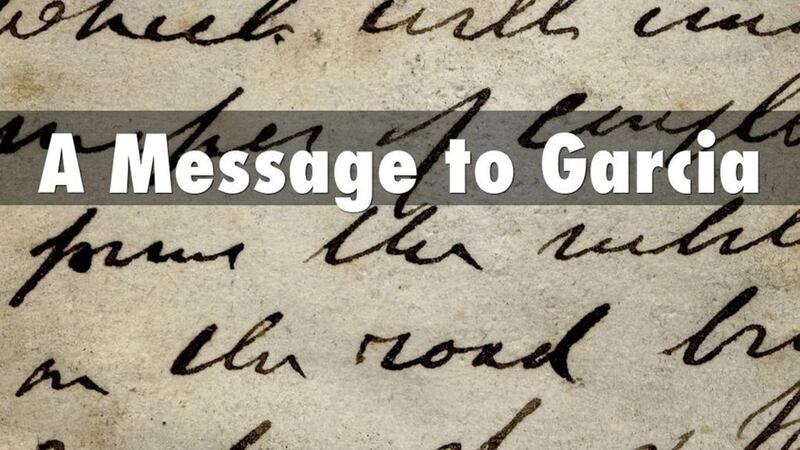LET’S start with a quick pop quiz for the bibliophiles among us. It’s pretty famous, was first published in 1899 and is only a few pages long. Any takers? It was once ubiquitous on the US Navy’s reading lists, effectively being a major part of the required reading for new recruits. Got it yet?
To date it’s estimated around 40 million copies have been printed and at least two films about it have been made. Light bulb just switched on? Well, for those of you still struggling, the answer is ‘A message to Garcia’ written by Elbert Hubbard.
What does this have to do with HR or the modern workplace? Well, the essay was based on the (probably apocryphal) tale of a soldier, Rowan, who, during the Spanish-American war, was sent to Cuba to seek assistance from General Garcia, leader of the rebels.
He discharged his duty without question or pause, taking off immediately on his travels into the jungle to find Garcia. Rowan didn’t ask endless questions about where Garcia was, how he was to get there, how quickly this needed done, could someone else do it, what if he ran into trouble. He just got on with it and used his initiative to get the job done. It was this devotion to duty which caused Hubbard to ponder the nature of employees in the workplace in general.
Hubbard wondered where one would find such employees who just get on with things. Who don’t ask a multitude of irrelevant questions. Who don’t seek to pass the work on to someone else, or claim ‘that’s not my job’. Who eschew excuses and reasons why something cannot be done. Who don’t start from a negative position. Who don’t ask why you wanted it done that way. Employees who just got on with things and showed initiative. And surely as employers; wouldn’t that be good?
Now that’s not to say that employers should simply require blind obedience from employees. What they do need though is a can-do attitude, a willingness, an appetite, an aptitude for making things happen. An ability to know when, how and indeed what to question. Critical thinking skills effectively.
If, for example, you had a medical emergency you would want a paramedic or doctor who knows the right questions to ask, the right mental check lists to process, the right tests to employ and use in diagnosis, but you would also want one who would, when push came to shove, not be afraid to act and act swiftly, decisively and accurately.
There’s also work to be done on the employer’s side. Before lamenting about the lack of employees who show this type of attitude, employers need to ensure that they have created the right conditions for them to flourish.
Have you empowered your employees to act or are they micromanaged to the point where they cannot make a pro-active decision? Has the correct training been provided for them. Are employees confident and competent to get on with the job because they have the requisite skills, experience and knowledge? Have you created a no blame culture where employees feel secure enough to try and perhaps fail the first time (you can legitimately expect them to earn from their mistakes thereafter however).
Ask yourself, were your instructions clear, do your employees know that you trust them, have confidence in them and will support them. Do you reward them or praise them for taking initiative, rather than take credit for yourself?
Maybe then you will enjoy a workforce of employees who (as Roosevelt once said) do not ‘live in the gray twilight that knows neither victory nor defeat’ but ‘dare mighty things..win glorious triumphs’
:: Barry Shannon (bshannon@cayan.com) is HR director at Cayan in Belfast.








